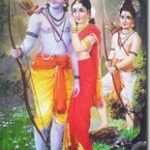Hinduism – Way of Life or Religion?
In the article, Religion, not just faith but understanding (Chennai Live News, 2015), the message was that all religions should be about human conduct. The origins of Hinduism strongly supports this statement. The Hindu beliefs, faith, and value systems, in contrast to other major religions of the world, did not arise from the teachings of a prophet or a saint. Instead, they evolved from within a community that considered certain attributes as essential for personal emancipation and peaceful coexistence. The migrants to India who interacted with these communities living near the Indus River, assumed that the beliefs and practices reflected the requirements of organized religion and named it, Hinduism. To the members of these communities, however, they were nothing more than a way of life inherited from their ancestors.
Who were these communities? The earliest inhabitants of India – from North East to North West to the South were the Gauda-Dravidians. The Gauda-Dravidians were civilized communities with established customs, beliefs, and value systems. Although the Aryan migrants tried to impose their customs and beliefs on them, they did not succeed. Eventually, when inter-mingling of the communities began to take place, greater understanding and acceptance of each others’ beliefs and values followed. Consequently, we can only state that the Hindu way of life arose from the combined wisdom of the natives and the migrants, with each contributing to its richness.
Although the Hindu way of life reflected the collective conscience of its people, it was not enforced as law. The people voluntarily followed the unwritten code because they recognized its value. The code suggested that an individual must live a life of virtue, truth, love, and compassion. To live a meaningful life, one need not conquer his people or accumulate material wealth but should attain control over words, actions, and behaviors. An individual must also extend his responsibilities beyond himself, including his community and the larger world. He should respect every object and creature whether animate and inanimate since each has a right to its place in the world. One of the reasons, why, in Hindu mythology, every creature, be it a snake or a lion, a river or a tree is considered sacred. While the uninformed view worship of these as primitive, a greater insight would reveal that considering everything in nature as sacred is the best way to prevent harm and to preserve harmony and balance. In summary, the Hindu way of life is better understood, not when we view it as a religion but as cultural and social history.
Dr. Ram S. Sriram
Vidyarthifoundation@gmail.com




Leave a Reply
You must be logged in to post a comment.